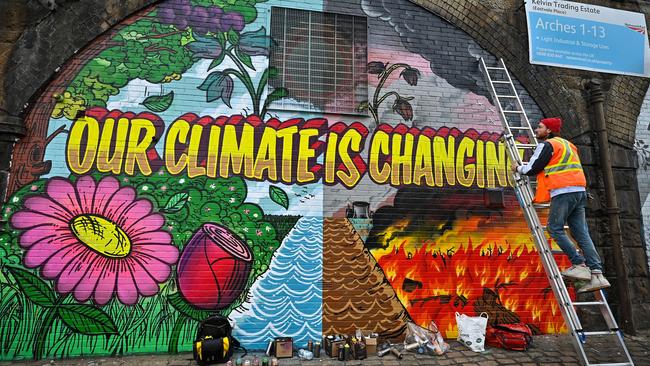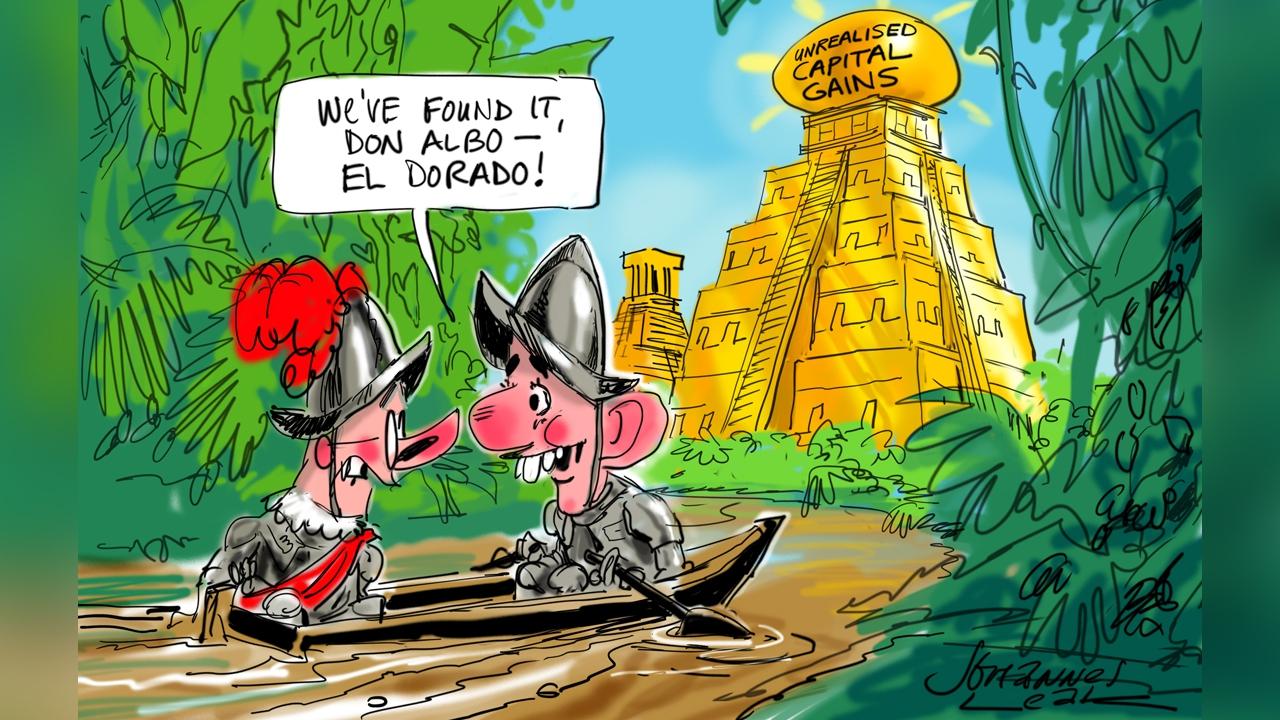
After all, in the theatre, the play eventually ends, allowing normal life to resume. In contrast, for all of their hypocrisy, the commitments extracted at Glasgow will have enduring impacts as governments, pummelled by armies of angry activists, create rods for their own backs.
Already, well-funded plaintiffs are clogging the world’s courts demanding that governments meet emissions reductions targets set years ago; if Glasgow results in even more ambitious promises being legislated, as seems likely, the lawfare will only escalate, further reducing the ability of governments to balance costs and benefits in the face of enormous uncertainties about what is feasible and what isn’t.
The problem is that potentially reasonable policy objectives have degenerated into all-or-nothing slogans, such as “net zero”, that are worthy imitators of Mr Micawber’s much-ridiculed maxim: “Annual income twenty pounds, annual expenditure nineteen nineteen and six, result happiness; annual income twenty pounds, annual expenditure twenty pounds nought and six, result misery.”
And as if rampant Micawberism weren’t bad enough, those slogans, along with climate change more generally, have acquired the status and motivating force of political myths.
To say that is not to suggest that climate change is a fiction – political myths may mangle the facts, but they are not necessarily fables, fairytales or legends. Rather, they are narratives, often capable of being reduced to catchphrases, that galvanise political actors by investing an event, prediction or cause with cosmic significance, crowding out competing considerations.
Those narratives’ extraordinary effectiveness is hardly news. In the Republic, which was written 2400 years ago, Plato notoriously recommended myths to rulers as a means of enforcing social cohesion, while Pierre Bayle, the author of the monumental Historical and Critical Dictionary (1697), claimed that monarchs would find nothing that could better divert “unruly and inconstant” populaces from their real problems (or create more jobs for those he mockingly called “diviners”) than apocalyptic projections and “vain imaginings”.
But a long line of eminent thinkers believed progress would relegate political myths to history’s dustbin. For Francis Bacon, the “idola theatri” – the theatrical side of human affairs – would be swept away by science’s forward march; David Hume argued that the delicate balancing of interests would replace tempestuous “enthusiasms” as the stuff of politics; and Max Weber, observing the triumph of bureaucracy, predicted that modern societies would be trapped in the “iron cage” of instrumental rationality, coldly and efficiently aligning means with ends.
In reality, the opposite proved to be the case, with modernity allowing political myths to flourish as never before. Few scholars more astutely grasped that phenomenon than Ernst Cassirer, a great German philosopher who recoiled in horror from the wave of popular support for Nazism and communism.
Four core features, Cassirer argued, characterised modern societies: the bewildering pace of change, which undermined traditional authority and fuelled anxieties about what lay ahead; rising education, which encouraged a predilection for new, abstract, ideas; the entry of “the masses” into politics; and the emergence of unprecedently powerful means of mass communications.
As these features played themselves out, the demand would burgeon for myths that could project a coherent, if potentially terrifying, image of the future and motivate collective action to avert the worst and secure the best. That would, in turn, create the space for a new type of politician, little different from the magicians of old, to thrive by exploiting mass communications to meet that need.
“To be sure,” Cassirer wrote, “we no longer have the primitive kind of sortilege, we no longer observe the flight of birds nor inspect the entrails of animals”; instead “the new sorcerers” rely on “refined and elaborate methods that claim to be scientific”. But with “prophecy an essential element in the new technique of rulership” and politicians morphing into “public fortune-tellers”, the “most improbable or even impossible promises are made; the millennium is predicted over and over again”.
Writing in the late 1930s, Cassirer certainly didn’t get everything right. For example, he expected political myths to become secular religions, like the all-encompassing ideologies of the 20th century; however, today’s political myths typically limit themselves to telling a story about some of the conditions of existence, without aspiring to address the meaning of life in general.
Forming an archipelago of extremisms, each myth takes an aspect of our concerns – race, gender, climate change – and elevates it into an absolute, as if all competing values had disappeared, and all trade-offs with them.
But of course they haven’t: which is why European politicians, while smugly proclaiming ever grander emissions reduction targets, are scrambling to subsidise families and businesses hit by the spiralling electricity and heating prices that are both those policies’ inevitable result and the key to securing the abatement they purportedly seek. As one hand furiously offsets what the other aims to do, reason seems no closer to determining policy than it was in the days of Bayle and of his equally formidable sparring partner, Baruch Spinoza.
Like Bayle, Spinoza doubted political myths would vanish any time soon. Yes, he observed in his Tractatus Theologico-Politicus (1670-71), which proved to be one of the Enlightenment’s defining works, it is possible to persuade people “by experience or ratiocination”; however, that requires “a long chain of arguments, as well as great care, acuteness, and self-restraint – qualities which are very rarely found”.
Far easier then to rely for their persuasive effects on the “beings of imagination”, which “we are accustomed to feign”, than on the complex and contestable “beings of reason”. Rulers always had – and, Spinoza concluded, they always would.
But if societies were inevitably governed by “the imaginary”, where they differed is in the degree to which those imaginaries could be openly questioned. That, for Spinoza, was what political maturity meant, and what the Enlightenment could hope to achieve: not the disappearance of the dreams and nightmares, apocalypses and utopias, which were inherent in the human condition, but their taming by the nonsense-cleansing power of honest, untrammelled discussion and reasoned critique.
It is those virtues that will be entirely absent from COP26. Were Spinoza attending, 350 years after the publication of his epoch-defining text, he could only gasp and weep.




There will, no doubt, be more than a touch of theatre to COP26. It is true that with Xi Jinping and possibly Narendra Modi too busy rearranging their stamp collections to attend, the organisers might as well stage Waiting for Godot. But while Vladimir’s weary admission in Godot that “I get used to the muck as I go along” perfectly encapsulates the numbness BoJo’s big show elicits, it would be wrong to dismiss the event as just another display of performance art.